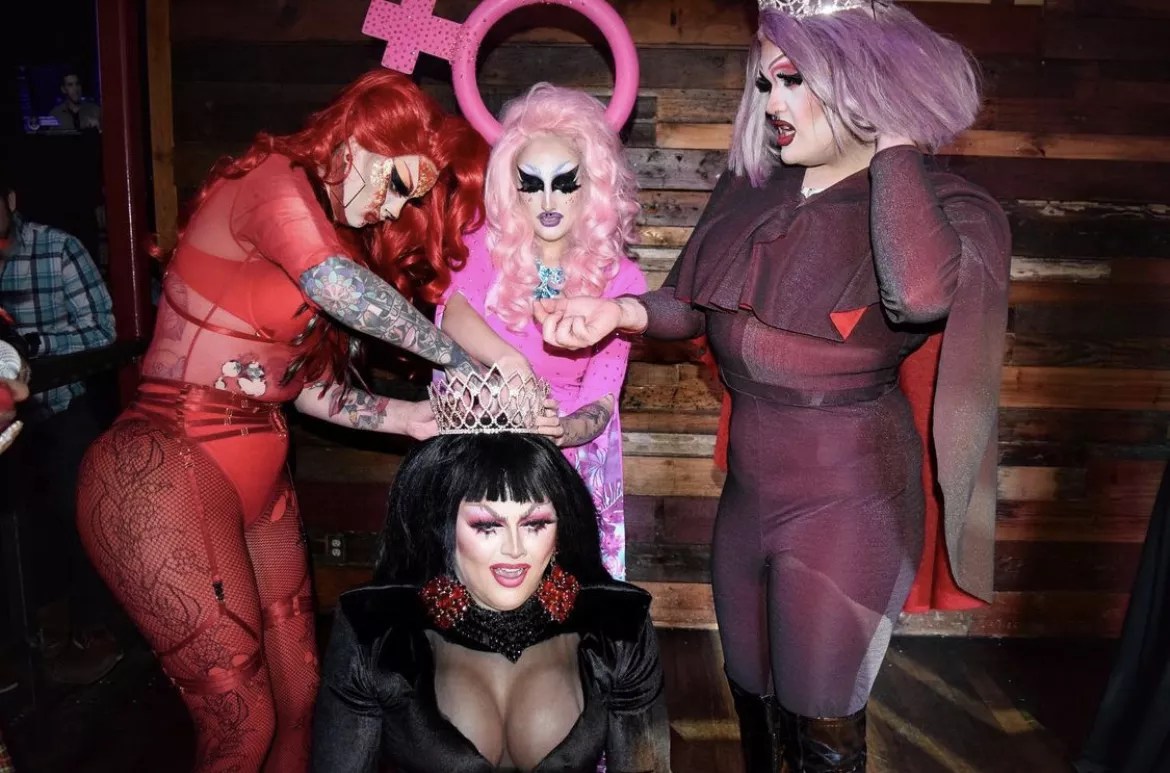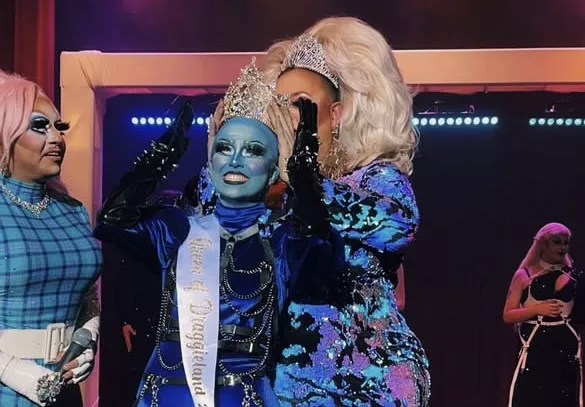
Kylee O’Hare Fatale

Audio By Carbonatix
Update, 3/24/2025, 9:46 a.m.: A federal judge has ruled Texas A&M students will be permitted to hold an upcoming drag show despite attempts by the university system’s Board of Regents to ban the performances. Draggieland, an annual drag pageant, will be able to go on as scheduled at the College Station campus on March 27.
An opinion issued Monday morning by Judge Lee H. Rosenthal of the U.S. District Court for the Southern District of Texas recognizes drag as a form of expression protected under the First Amendment. The judge wrote that protecting the First Amendment rights of students is critical in a time when “the commitment to free speech on campuses has been both challenging and challenged” by “all sides of the political spectrum.”
“A&M has consistently recognized in its policies on speech and conduct on its campuses that exposure to a variety of ideas, including ideas that may offend some or many listeners, is a critical part of the education it promises to provide,” Rosenthal wrote in the opinion. “[Draggieland] is a ticketed event; only those who want to attend do so. Anyone who finds the performance or performers offensive has a simple remedy: don’t go.”
Original article below:
Tuesday morning, a federal judge entered a Houston courtroom and oversaw the motion hearing in a First Amendment challenge to the Texas A&M University System’s drag performance ban, which was approved unanimously by the system’s board of regents last month.
As the opening arguments were underway, officials charged with overseeing the University of Texas system’s fleet of 14 institutions were preparing to add their schools to a growing list of universities where drag shows will not be permitted.
The latest ban was passed to “comply with all applicable federal, state and local laws and executive orders, including any restriction on the use of public funds,” UT System Board of Regents Chair Kevin Eltife said in a statement. The ban was approved just days after Tim O’Hare, a UT alumnus and Tarrant County judge over the Commissioners Court with a lengthy record of ultra-conservative policies, sent the Board of Regents a letter urging them to follow the lead of the Texas A&M system.
“Just last month, UT-Arlington hosted an event which prominently featured a drag performer,” O’Hare wrote. “Rather than promoting anything to do with education, drag shows and related events denigrate women… I would be encouraged to see the UT System focus on fostering environments of learning and not use resources to prop up sexually-oriented events.”
O’Hare added that, as a public university system receiving federal funding, the University of Texas system must comply with an executive order issued by President Donald Trump and co-signed by Texas Gov. Greg Abbott that states, “federal funds shall not be used to promote gender ideology.”
Gender ideology, many conservatives claim, is a growing phenomenon where biological sex is replaced by “an ever-shifting concept of self-assessed gender identity.” Civil rights advocates say this definition could be used to target transgender and non-binary individuals, and it also coincides with the wave of systemic opposition coming against drag groups on Texas’ public university campuses.
“They see it as men dressing up as women, disrespecting women, disrespecting femininity, and making light of womanhood,” Jessy B. Darling, a Texas A&M graduate who won the annual Draggieland pageant in 2022, told the Observer after her alma mater approved the ban. “Which is such a closed-minded view of drag.”
A First Amendment Fight in Aggieland
Within days of Texas A&M’s drag ban, the Foundation for Individual Rights and Expression (FIRE) filed a temporary restraining order that would allow Draggieland to proceed as scheduled on March 26. The injunction was filed in federal court on behalf of the student group that sponsors Draggieland, the Texas A&M Queer Empowerment Council.

Jessy B. Darling was crowned Draggieland’s queen in 2022. Her winning performance was inspired by the children’s film “Megamind,” which follows a blue, bald super villain.
Jessy B. Darling
“These are students who are conveying to a very conservative campus community that there are LGBTQ members of this community, and there’s a space for them in this community,” FIRE Attorney Adam Steinbaugh said in court Tuesday. “A lot of people have their own individual lines that they think that speech should not cross, but it’s not the government that gets to draw those lines.”
Zachary Berg from the Texas Attorney General’s Office spoke on behalf of the Texas A&M system and said the decision to ban drag performances is “conduct” based and does not target a specific form of expression.
The Battalion, Texas A&M’s student newspaper, reports the five factors that will be used to determine whether an event falls under the drag ban are “biological males dressing in women’s clothing, wearing exaggerated female makeup and/or exaggerated prosthetics meant to parody the female body type, and [events] that are: open to the public; involve sexualized, vulgar or lewd conduct; and involve conduct that demeans women.” (Bummer for any A&M students hoping to start a Traditional Shakespeare Performance Club.)
In court documents, Texas A&M also argued that the university system risks losing critical federal funding if the flagship campus in College Station allows Draggieland to continue as scheduled later this month.
Judge Lee Rosenthal is expected to release a decision in the case before March 26. Alex Gonce, an officer with the Texas A&M Queer Empowerment Council, told The Battalion he is remaining “hopeful” after sitting in on the hearing.